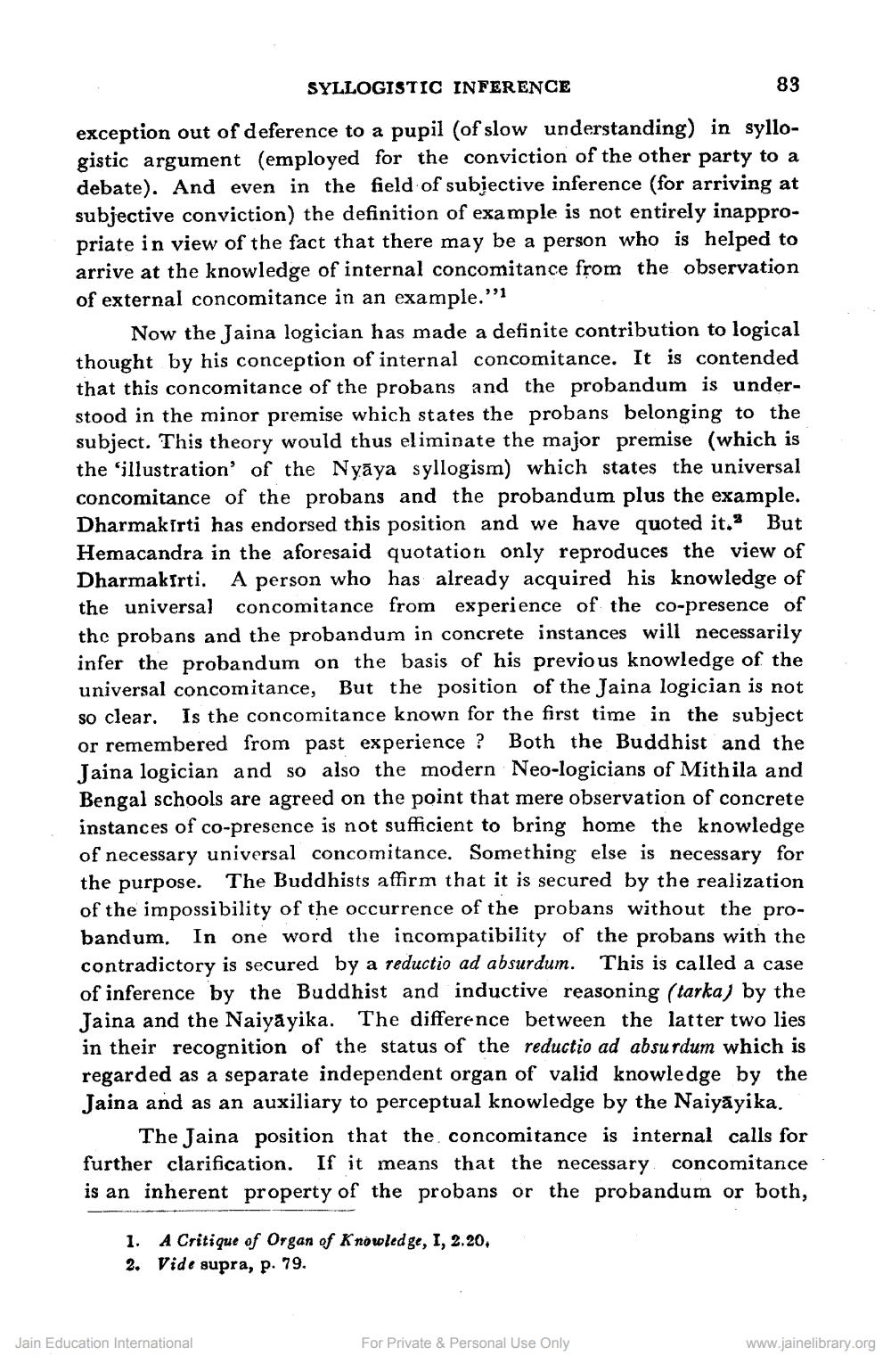________________
SYLLOGISTIC INFERENCE
83
exception out of deference to a pupil (of slow understanding) in syllogistic argument (employed for the conviction of the other party to a debate). And even in the field of subiective inference (for arriving at subjective conviction) the definition of example is not entirely inappropriate in view of the fact that there may be a person who is helped to arrive at the knowledge of internal concomitance from the observation of external concomitance in an example."
Now the Jaina logician has made a definite contribution to logical thought by his conception of internal concomitance. It is contended that this concomitance of the probans and the probandum is understood in the minor premise which states the probans belonging to the subject. This theory would thus eliminate the major premise (which is the 'illustration' of the Nyāya syllogism) which states the universal concomitance of the probans and the probandum plus the example. Dharmakirti has endorsed this position and we have quoted it. But Hemacandra in the aforesaid quotation only reproduces the view of DharmakIrti. A person who has already acquired his knowledge of the universal concomitance from experience of the co-presence of the probans and the probandum in concrete instances will necessarily infer the probandum on the basis of his previous knowledge of the universal concomitance, But the position of the Jaina logician is not so clear. Is the concomitance known for the first time in the subject or remembered from past experience ? Both the Buddhist and the Jaina logician and so also the modern Neo-logicians of Mithila and Bengal schools are agreed on the point that mere observation of concrete instances of co-presence is not sufficient to bring home the knowledge of necessary universal concomitance. Something else is necessary for the purpose. The Buddhists affirm that it is secured by the realization of the impossibility of the occurrence of the probans without the probandum. In one word the incompatibility of the probans with the contradictory is secured by a reductio ad absurdum. This is called a case of inference by the Buddhist and inductive reasoning (tarka) by the Jaina and the Naiyāyika. The difference between the latter two lies in their recognition of the status of the reductio ad absurdum which is regarded as a separate independent organ of valid knowledge by the Jaina and as an auxiliary to perceptual knowledge by the Naiyáyika.
The Jaina position that the concomitance is internal calls for further clarification. If it means that the necessary concomitance is an inherent property of the probans or the probandum or both,
1. A Critique of Organ of Knowledge, I, 2.20. 2. Vide supra, p. 79.
Jain Education International
For Private & Personal Use Only
www.jainelibrary.org




